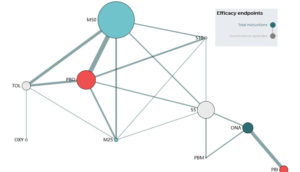Complex data and scientific evidence are the currency of health economics and outcomes research (HEOR), and technical tools have always played a role in how we investigate value and access solutions for medicines.
Where applicable, this has historically included statistical methodologies related to artificial intelligence (AI), such as machine learning and automation. Although AI and specifically large language models (LLMs) have become a high-profile and growing force in our industry, we believe they are best used in a supporting capacity, in thoughtfully selected settings, rather than as a lead player.
Our work will always be guided by the strategic insights of highly skilled teams, a human-centered approach with rigorous standards of privacy, confidentiality, and transparency. When AI and other advanced tools are used, it is at the discretion and supervision of experts who evaluate and apply those outputs within project frameworks, enhanced with a nuanced understanding of the results and implications.
Given the acceleration of LLMs, our analytics teams actively monitor emerging technologies to identify new methods that can improve efficiencies. Even with increasingly sophisticated tools available, we continue to value the important role of human judgment in all aspects of our client assignments. In keeping with our values-based work ethic, we pledge to maintain an open dialogue with clients about our use of AI as we service their needs above expectations.

